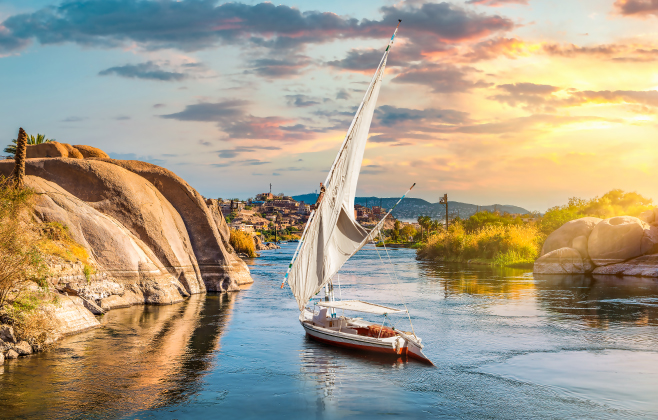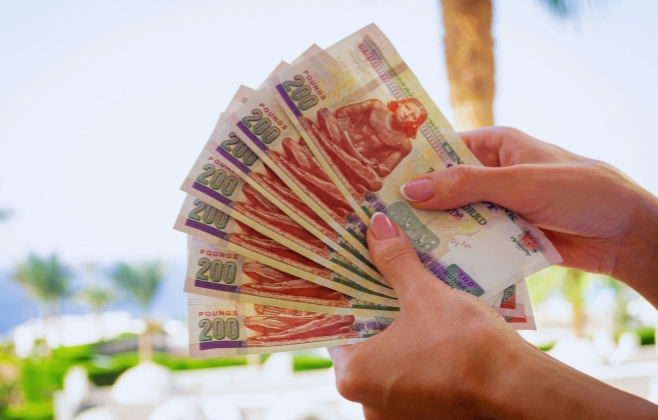Egypt tips for first timers: Things to know before going to Egypt
Planning your first trip to Egypt? These essential Egypt tips for first timers will help you navigate the country with confidence—from understanding local customs to staying safe, choosing the best travel time, and exploring must-see attractions like Cairo, Luxor, and Aswan. Whether you're discovering ancient wonders or sampling traditional cuisine, a bit of preparation will make your journey smoother. Before traveling, remember to apply for your e-Visa Egypt to ensure a hassle-free entry and more time to enjoy your adventure.

Egypt has consistently ranked among the top five desired travel destinations worldwide
10 things to know before travelling to Egypt
Egypt, a country of ancient marvels, ancient history and colorful culture has been consistently a bucket-list destination among the world travelers. Egypt has a charm that no other country in the world can match and this charm is demonstrated by the stunning and awe-inspiring pyramids, to the calm beauty of the river Nile. These are 10 tips on visiting Egypt as a first-time visitor:
1. You will need a visa to travel to Egypt
The majority of foreign tourists visiting Egypt will also need a visa together with an effective passport.
Egypt Immigration Services will allow you to apply for an Egypt e-visa. It is the most convenient and direct way. Currently, some 150 countries are allowed to apply online to obtain an electronic visa to visit Egypt through a fast online procedure. After your signature, the e-Visa will be electronically stored in your passport and the copy will also be sent through email. You should print out this copy and offer it to the immigration representatives when you enter Egypt. Egypt tourist e-Visa allows a maximum period of stay of 30 days.
You may also obtain a visa as soon as you arrive at any immigration checkpoint. The Cairo International Airport has a bank window in which you can purchase a visa on arrival at the passport control. You have to pay in cash and the cost is about 25.
2. Keep small change
You will need plenty of cash in Egypt. The currency in Egypt is the Egyptian pound (EGP).
Tipping is also widespread in Egypt and especially in service industries. Tips, also known as baksheesh may range between 5 EGP (less than 0.50) to 100 EGP ($5.50) depending on the recipient and location.
Also, when you change your money, pick up big and small bills so that payment and giving of tips in Egypt are much easier since it is primarily a cash society.
Food bought on the street is usually paid in loose change, and restaurants and cafes are easier to work out since a 10 -15 percent of the amount is average. Tour guides and drivers who provide their services over a long period of time are generally given higher gratuities. Though the delivery service, cabs, and ride-hailing applications are optional when it comes to tipping, you can decide to tip them as long as you are satisfied with the service.

In Egypt, the currency is the Egyptian pound (EGP)
One essential tip for first-time visitors is dressing appropriately for the climate and culture—get inspired with practical suggestions from this guide on Egypt travel outfits to stay comfortable and respectful throughout your trip.
3. Learn a few Arabic words
Learning a foreign language is the best approach to get to know the locals better. With our Egypt tours, we aim to show you not only the popular tourist attractions but also local culture and daily life. Egyptians will warm up to you quickly if you learn a few basic phrases like "is salam Alaykum," which means "hello," and "shukran," which means "thank you".
4. Don't drink the tap water
One of the best traveling tips to Egypt is do not drink tap water in Egypt. Although the tap water in Egypt is not harmful to consume, it tastes awful and may do wonders to your stomach since it is highly chlorinated.
To keep yourself hydrated during your Egypt tour you should also drink bottled water particularly when you are going around in the heat.
Whenever buying bottled water in Egypt, ensure that the seal is not broken. Take bottled water, brush and rinse your teeth with the water, and most crucial, no uncooked food, salads, uncooked vegetables, unpeeled fruit and half cooked meat.
5. Avoid public displays of affection
Egypt is also conservative and this encompasses the way individuals demonstrate their love in the open. Although holding hands will not make anyone pay much attention, limit your open physical contact to what is termed modest and decent.
Platonic kisses are also very common on the cheek in Egypt and again depending on your setting, one should only extend it to members of the same sex.
6. Do Haggle!
The markets of Egypt sell several types of goods such as papyrus papers and customary souvenirs as well as elaborately designed silverware and ceramics that have been painted by hand. But when you feel there is something that appears to be a bit overpriced, then there is no reluctance to do some bargaining. It is important to note that haggling is a normal practice in Egypt and the sellers in the markets expect you to ask them to lower the price.
As much as vendors may not love the procedure of negotiation, it is part and parcel of the shopping experience. Whether you pay a lot or a little in the end, you can easily persuade yourself that you have got a good bargain.
Do not attempt to haggle in big shops at the tourist destinations or outside, and where an item has the official price written on, then it is not negotiable.

Please remember that haggling is customary in Egypt
To better understand local customs and dress modestly during your trip, take a moment to explore the traditional dress of Egypt, which reflects the country’s rich cultural and religious heritage.
7. What to wear in Egypt
One of the best things to know when traveling to Egypt as a first-time traveler is trying to figure out what to take and how to dress. Egypt is a Muslim state, which means that one should dress accordingly. We recommend the midi skirts, tank tops, t-shirts, scarfs, and loose jeans.
Travel tips to Egypt: you ought to carry light and avoid jeans since this place is very hot. You will have some places where you will have to cover your knees and shoulders (such as the Muhammad Ali Mosque in Cairo).
You will be walking a lot, you had better be sure that your shoes are comfortable. You may carry some pairs of sandals and two pairs of shoes.
8. Camera fees and photography
For people who want to snap photos at specific tourist locations, most tourist attractions charge a "camera fee" in addition to an entry price. Egypt is often pretty strange when it comes to photography and filming, particularly street photography and other things.
A police officer may reprimand you for photographing certain structures for some strange reason, even if there are no signs prohibiting it. Ask for permission before photographing someone, and provide a gratuity as well.
9. Eat where the locals eat
Egypt has a vast number of gastronomic options starting with five-star restaurants and freshly prepared street food. All things are affordable and satisfying. The best place to find good and authentic food is normally where the locals have their meals, and be sensitive to where they go. Street food is believed to be safe to consume in case you can peel it or serve it hot. Egyptians regard using the left hand as unsanitary to eat or pass food to someone with the left hand. Along with the service fee and the sales tax in the restaurant, your server will require a tip.

Eat where the locals eat
Explore more: Top 10 traditional foods in Egypt you need to try
10. Best time to visit Egypt
The best months to visit Egypt are from October through March, and December and January are the busiest travel months.
We believe that the shoulder seasons, which are March through May and September and October in Egypt, are the ideal times to travel there. There should be less of a throng and nicer weather.
If you visit during the dead of the summer (in July), the weather is freaking hot. Although the crowds weren't too awful at this time, you might want to avoid visiting Egypt in the summer if you have a problem with the heat.
Don’t forget to bring home a piece of your journey—check out the best souvenirs from Egypt that perfectly capture the country’s history, culture, and craftsmanship.
Other tips for traveling to Egypt for first-time travelers: Souvenirs to buy
Here are several enjoyable keepsakes to buy while in Egypt!
- Papyrus: The first form of "paper," transformed from papyrus plants into exquisite pieces of artwork.
- Essential oils: Perfumes and essential oils hold great popularity in Egypt. The perfume bottles also make for delightful souvenirs.
- Cartouche: A charming jewelry item that can be personalized with either your own name or the name of a pharaoh.
- Egyptian cotton: Renowned for its quality, Egyptian cotton offers a wonderful souvenir choice.
By keeping these essential tips in mind, you'll be well-prepared to navigate the intricacies of travel in Egypt and make the most of your first-time visit.
If you have any questions, contact us for more detailed information on visa requirements for foreign tourists.
In conclusion
In conclusion, following the right Egypt tips for first timers will help you enjoy a smooth, memorable, and culturally rich journey. From learning local etiquette to planning transportation and choosing the best sightseeing routes, a little preparation goes a long way. Whether you're visiting the ancient temples of Luxor or the bustling markets of Cairo, staying informed ensures a stress-free adventure. Before you go, remember to apply for your e-Visa Egypt to streamline your entry and focus on exploring this timeless destination.











